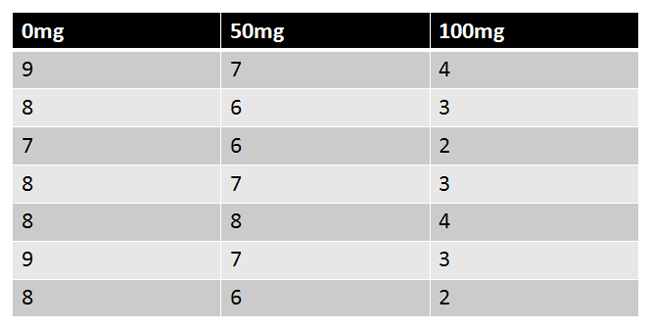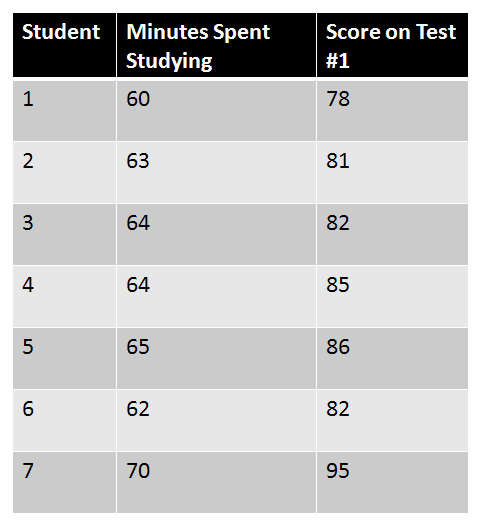| Causation |
|---|
|
Causation means that one variable causes a change in another variable. |
| Correlation |
|---|
|
To say that two variables are correlated is to say that they share some kind of relationship. |
In order to imply causation, a true experiment must be performed where subjects are randomly assigned to different conditions.
Here's an example of a true experiment where causation can be implied:
Researchers want to test a new anti-anxiety medication. They split participants into three conditions (0mg, 50mg, and 100mg), then ask them to rate their anxiety level on a scale of 1-10. Are there any differences between the three conditions using alpha = 0.05?

|
Figure 1. |
|---|
This is a true experiment because participants are randomly being assigned to different conditions. Any differences between the three groups should only be due to the effects of dosage.
Here's an example of correlational data:

|
Figure 2. |
|---|
Here, we see that students who spend more time studying for tests tend to score better than students who spend less time studying. However, because this is not a true experiment we cannot imply that studying causes better test scores. Perhaps the high scoring students in this sample were just better test takers.